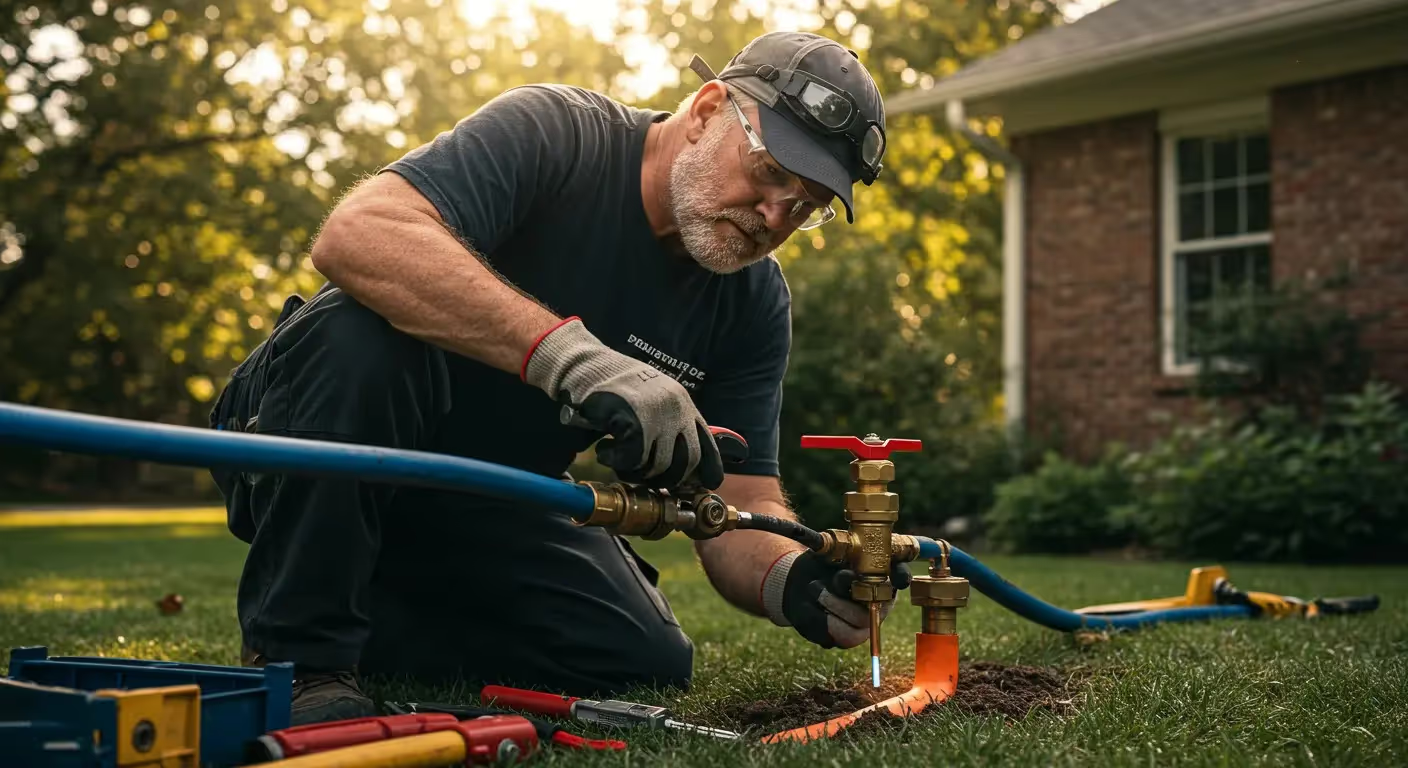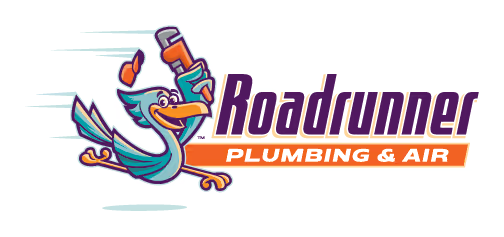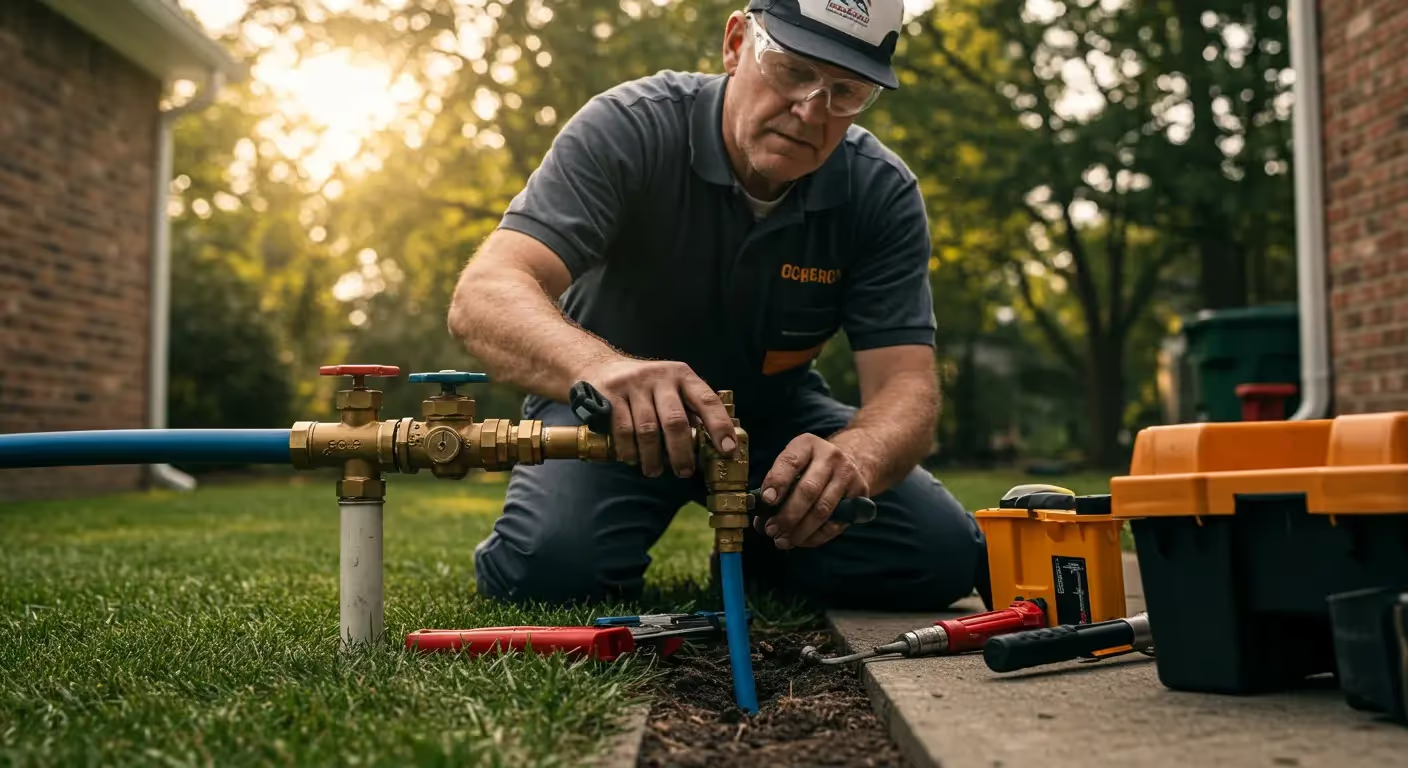Gas Line Repair Services in Stone Oak, TX
Dealing with a suspected gas line issue in your Stone Oak home or business is a serious matter that requires immediate attention from qualified professionals. Natural gas is a safe and efficient energy source when contained within properly functioning lines, but leaks or damage can pose significant safety risks, including fire, explosion, and health hazards from carbon monoxide exposure. Identifying and addressing these issues quickly and correctly is paramount.
Gas line repair involves a meticulous process of locating the source of a leak or damage, safely containing the issue, performing the necessary repairs, and thoroughly testing the line to ensure its integrity and safety before restoring service. This work is complex and inherently dangerous if not handled by licensed and experienced technicians such as those of Roadrunner Plumbing & Air who adhere to strict safety protocols and local codes.
Why Gas Line Issues Occur
Gas lines, whether supplying a furnace, water heater, stove, or other gas appliances, can develop problems over time or due to external factors. Understanding the potential causes of gas line damage can help homeowners in Stone Oak recognize potential risks:
- Aging Infrastructure: Older gas lines, particularly those made of materials prone to corrosion like bare steel, can deteriorate over time. Corrosion can weaken the pipe walls, leading to pinhole leaks or larger breaches.
- Ground Movement: Shifting soil, seismic activity (even minor), or the settling of a property can put stress on underground or in-wall gas lines, potentially causing joints to loosen or pipes to crack or bend.
- External Damage: Digging activities in yards without prior utility line locating (e.g., for landscaping, fencing, or other construction) are a common cause of damage to buried gas lines. Punctures or crushing can occur if precautions like calling 811 are not taken.
- Poor Installation: Improperly installed gas lines, including incorrectly threaded connections, inadequate support, or the use of incompatible materials, can create stress points or weak links where leaks are more likely to develop.
- Appliance Connection Issues: The flexible connectors linking appliances to the main gas line can sometimes be a source of leaks, especially if they are old, kinked, or not properly installed.
- Environmental Factors: Tree roots growing around underground lines can sometimes exert pressure, leading to damage. Changes in temperature can also cause expansion and contraction, stressing pipe joints.
Recognizing that these issues can arise underscores the importance of vigilance and prompt action if a gas leak is suspected.

How to Identify a Potential Gas Leak
While you should never try to locate or fix a gas leak yourself, knowing the signs is crucial for your safety and allows you to react appropriately by evacuating and contacting professionals. Common indicators of a gas leak include:
- The Smell of Sulfur or "Rotten Eggs": Utility companies add a chemical called mercaptan to natural gas, which is naturally odorless, to give it a distinctive, unpleasant smell similar to rotten eggs. This is the most common way people detect leaks.
- Hissing or Blowing Sound: A leak, especially a larger one, may create an audible hissing or blowing sound near the gas line or appliance as gas escapes under pressure.
- Visual Cues: Outdoors, you might see bubbling in wet areas of the yard or dead vegetation over a buried gas line. Indoors, if a leak is significant, it could potentially cause dust or debris to blow away from the leak source, though this is less common.
- Physical Symptoms: Inhaling natural gas can cause symptoms like headache, dizziness, nausea, fatigue, or difficulty breathing. If multiple people in the property experience these symptoms simultaneously, especially without a clear cause, it could indicate a leak.
- Appliance Pilot Light Issues: If a pilot light on a gas appliance frequently goes out for no apparent reason, it could potentially be related to an inconsistent gas supply or a leak nearby.
If you notice any of these signs, it is critical to prioritize safety: leave the premises immediately, do not use any electrical switches (as they can create a spark), do not light matches or lighters, do not use your phone until you are a safe distance away, and contact the gas company and a qualified plumber trained in Gas Plumbers services from a safe location.
The Professional Gas Line Repair Process
When our experienced and licensed technicians arrive at your Stone Oak property to address a suspected gas leak or damage, they follow a rigorous process designed for safety and effectiveness:
- Immediate Safety Assessment and Gas Shut Off: The first and most critical step is to ensure the immediate safety of the occupants and the property. This typically involves assessing the situation, ventilating the area if safe to do so, and most importantly, shutting off the gas supply to the property or the affected section of the line. This stops the flow of gas and mitigates the immediate danger.
- Leak Detection: Using specialized equipment, such as electronic gas leak detectors and manometers, technicians pinpoint the exact location of the leak or damage. This may involve testing connections, tracing the gas line, or performing pressure tests on isolated sections of the piping system. This step requires expertise to accurately locate even small leaks, which might not be immediately obvious.
- Diagnosis of Damage: Once the leak source is found, the technician diagnoses the nature and extent of the damage. Is it a corroded pipe section, a loose fitting, damage from external impact, or something else? Understanding the cause is key to determining the most appropriate and durable repair method.
- Repair Plan and Execution: Based on the diagnosis, the technician develops a plan for repair. This could involve:
- Tightening or replacing faulty fittings and connections.
- Replacing damaged sections of pipe. This often requires cutting out the compromised section and replacing it with new piping material, carefully joining the sections using approved methods (like threading, welding, or specialized fittings) that meet code requirements.
- Applying approved sealants or epoxies for specific types of minor leaks, though replacement of the damaged section is often preferred for long-term reliability.
- Repairing or replacing damaged appliance connectors.
The repair work is performed meticulously, using high-quality materials suitable for gas lines and following all applicable plumbing and gas codes.
- System Testing: After the repair is completed, thorough testing is conducted to ensure the entire system is leak-free. This typically involves a pressure test, where the gas line is pressurized and monitored for any drop in pressure, indicating a potential leak. Electronic leak detectors may also be used again over the repaired area and throughout the system. This testing is non-negotiable and must confirm the line's integrity before gas service is restored.
- Gas Service Restoration: Only after the system has passed all safety and pressure tests is the gas supply carefully restored. The technician will then typically relight any pilot lights on appliances and verify that all connected gas appliances are functioning correctly and safely.
- Cleanup and Documentation: The work area is cleaned up, and the technician provides documentation of the work performed, including the nature of the problem found, the repairs made, and the results of the safety tests.
Why Choose Licensed Professionals for Gas Line Repair
Repairing gas lines is not a do-it-yourself task. It requires specific training, knowledge of gas properties and safety protocols, and adherence to strict regulations and codes. Attempting to repair a gas line yourself is extremely dangerous and often illegal.
Licensed Gas Plumbers, like those on our team, possess the necessary expertise, tools, and understanding of safety procedures to handle gas line repairs safely and effectively. They are trained to:
- Identify different types of piping materials and their specific repair requirements.
- Understand gas pressure and flow dynamics.
- Use specialized leak detection equipment accurately.
- Perform repairs that meet current safety standards and local building codes.
- Handle emergency situations involving gas leaks.
Entrusting your gas line repair to qualified professionals ensures the safety of your property and everyone in it, provides a reliable long-term solution, and ensures compliance with necessary regulations. Our technicians are committed to performing these critical repairs with the highest level of safety and precision.
Gas line problems in Stone Oak, TX, require immediate and professional attention. Recognizing the signs of a leak and knowing to contact the experienced, licensed Gas Plumbers at Roadrunner Plumbing & Air is the first step in ensuring your safety and resolving the issue efficiently and effectively.
Financing options
flexible financing solutions

We offer convenient financing options through Wells Fargo, making it easier to invest in plumbing or HVAC upgrades with flexible payments that fit your budget. Your comfort, safety, and satisfaction are always our top priorities—every service, every time.
Apply for Financing
We offer flexible financing options through GreenSky to help you move forward with essential plumbing or HVAC upgrades without delay. With quick approvals and affordable monthly payments, you can get the service you need while staying within budget.
Apply for Financing
We offer financing through Synchrony to make it easier to get the plumbing or HVAC service you need without delay. With simple application steps and convenient monthly payments, you can manage costs while enjoying reliable home comfort.
Apply for Financing
where we serve

.png)

.png)